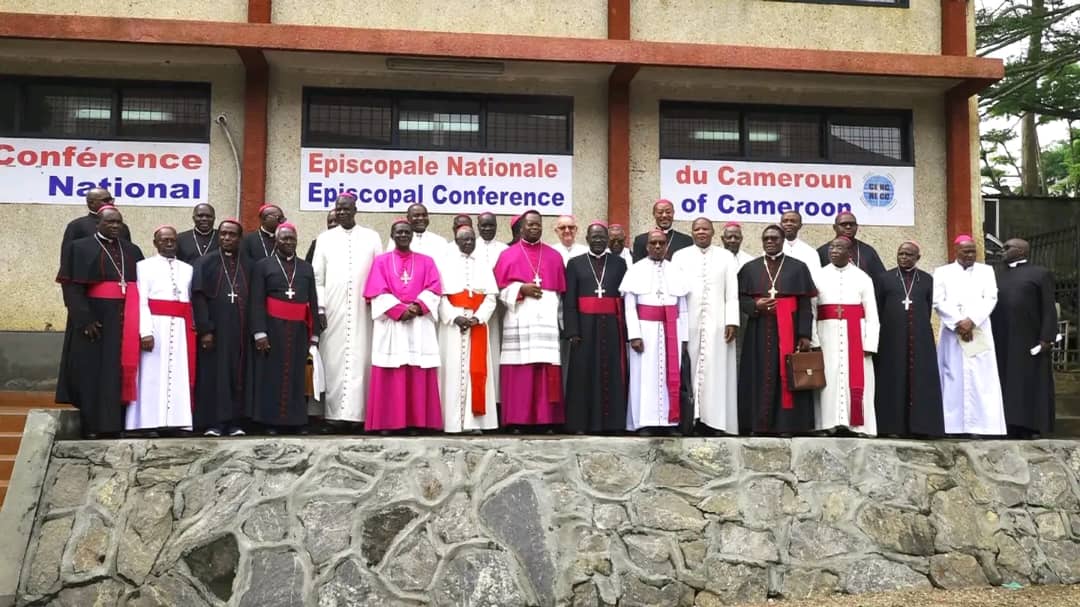By Paschal Norbert
YAOUNDÉ, AUGUST 22, 2025 (CISA) – Catholic bishops in Cameroon have called on citizens to approach the upcoming presidential and regional elections on October 12, 2025, with responsibility, conscience, and a sense of faith, warning that misuse of political power could deepen injustice, oppression, and social division in the country.
In a pastoral letter titled “On the Occasion of the 2025 Presidential and Regional Elections in Cameroon”, the National Episcopal Conference of Cameroon (NECC) reminded the faithful that elections are not only about choosing leaders but about safeguarding the nation’s future.
“The year 2025, as we very well know, is a crucial and decisive year in the socio-political life of Cameroon, due to the presidential and regional elections,” the bishops wrote, noting “Elections represent significant moments that engage the attention of all citizens, while at the same time it is an occasion for the people to assert their sovereignty through the free and deliberate choice of their leaders.”
The bishops emphasized the duty of the Church to accompany the people during this historic moment and urged citizens to reject apathy and manipulation.
“It is, in fact, the duty of the Catholic Church to be engaged in this process to guarantee a transparent, free, fair and impartial election. It is about building trust and encouraging voters to turn out in large numbers,” they declared.
They reminded Cameroonians that true Christian faith must be lived out through responsible political engagement: “The purpose of this letter is to help you rediscover the sense of politics; to provide clear guidelines for reflection and to enlighten your conscience so that you can make a free and responsible choice.”
Anticipating criticisms that the Church is “interfering” in politics, the bishops defended their involvement, stressing that faith and citizenship cannot be separated when it comes to seeking the common good.
“Some of our fellow citizens find it surprising that the Catholic Church should take an interest in politics, for example by getting involved in democratic processes. They even complain that she is ‘interfering’ in areas that are not her spheres of influence,” the bishops acknowledged.
But they countered by citing Jesus’ teaching in Luke 20:25: “Give back to Caesar what belongs to Caesar and to God what belongs to God.” According to the bishops, this does not mean a strict separation of Church and State but rather complementary responsibilities.
“The mutual cooperation between the Church and the political community does not entail a separation that excludes cooperation,” they explained.
The bishops devoted significant attention to the duty to vote, underscoring that it belongs not only to individuals but to civil society as a whole.
“The duty to vote also applies to groups such as political parties,” they said, explaining “Political parties are called to interpret the aspirations of civil society, orienting them towards the common good, offering citizens the effective possibility of contributing to the formulation of political choices.”
They stressed that civil society must not be seen as a mere appendix of political institutions but as the very foundation from which political legitimacy springs.
“The purpose of civil society is universal, since it concerns the common good, to which each and every citizen has a right in due proportion,” the letter stated.
Quoting Pope Francis, the bishops cautioned political actors against seeking power for selfish ends.
“The thirst for power at any cost leads to abuse and injustice. Politics is an essential means for promoting citizenship and human endeavours, but when political life is not seen as a form of service to society as a whole, it can become a means of oppression, marginalization and even destruction,” the bishops warned.
They insisted that political life, when inspired by respect for human dignity and charity, can become an outstanding form of service: “Man’s earthly activity, when inspired and sustained by charity, contributes to the building of the universal city of God, which is the goal of the history of the human family.”
